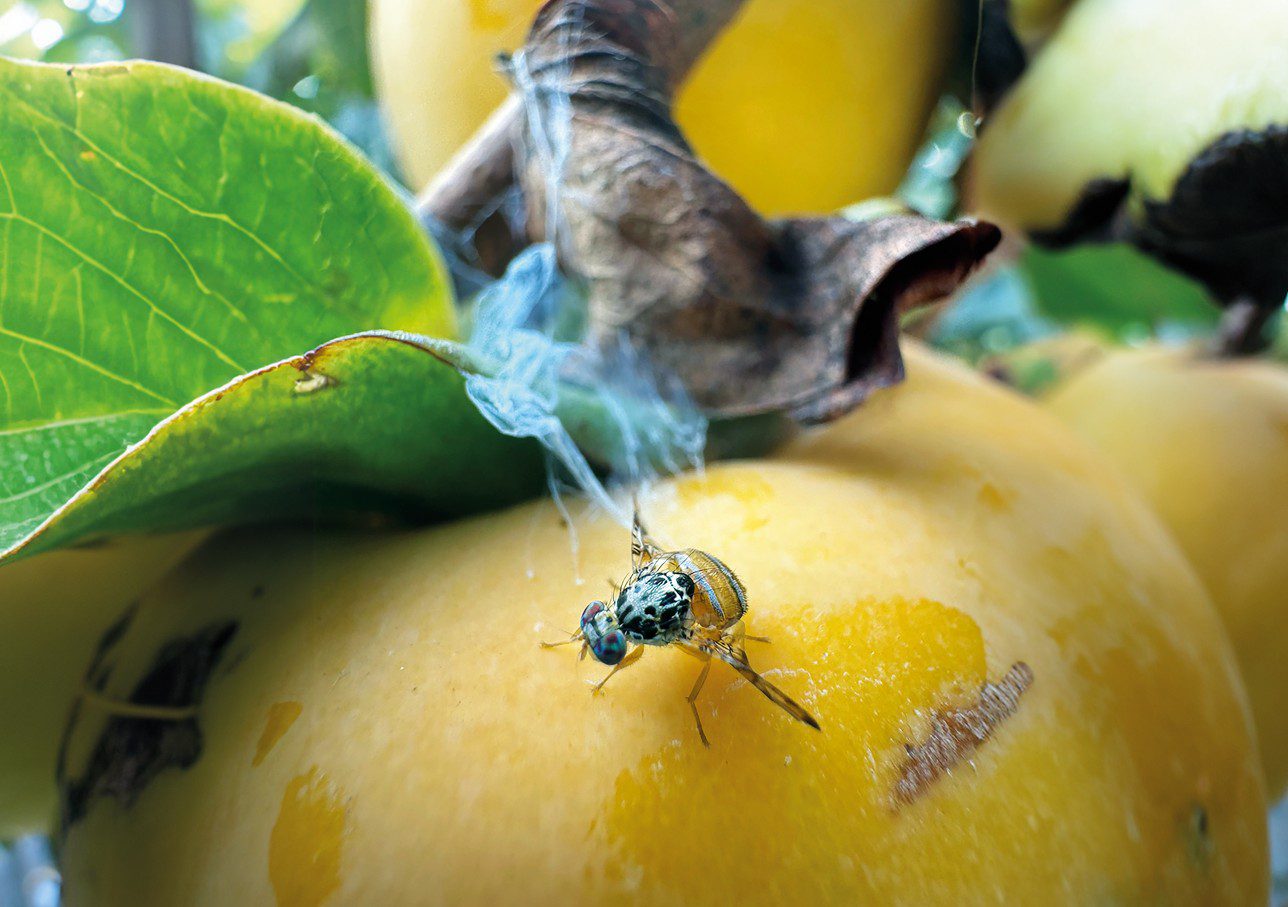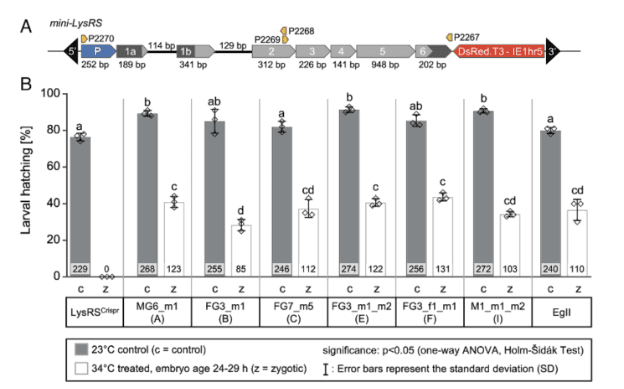
A Genetic Milestone for Pest Control: New Insights into Temperature-Sensitive Lethality in Medfly
04 Aug 2025
A new study published in PNAS by Aumann et al. (2025) offers important insights into the genetic basis of temperature-sensitive lethality (tsl) in the Mediterranean fruit fly (Ceratitis capitata)
The tsl trait is central to the success of genetic sexing strains (GSS), which are widely used in Sterile Insect Technique (SIT) programs to control pest insect populations in an environmentally friendly and species-specific manner. The research was supported in part by the REACT project, which promotes innovative approaches to sustainable pest management.
In SIT programs, sterile male insects are released into the environment to reduce wild pest populations. The efficiency and cost-effectiveness of this method depend on reliably separating males from females during rearing. In C. capitata, the tsl trait allows for this separation by selectively eliminating female embryos through heat treatment. However, while this trait has been used successfully in medfly for decades, its genetic basis remained unresolved—until now.
What the study found
Through a combination of genome analysis, CRISPR/Cas9 gene editing, and rescue experiments, the authors identified a specific point mutation in the highly conserved Lysyl-tRNA synthetase (LysRS) gene as the cause of the tsl phenotype. Introducing this mutation into a wild-type strain replicated the original tsl effect, leading to complete embryonic lethality at elevated temperatures. The phenotype was reversed by integrating a minimal version of the LysRS gene, confirming its functional role.
Because LysRS is present and highly conserved across insect species, the findings provide a foundation for transferring tsl-based GSS to other agricultural and disease-vector pests. Importantly, the approach relies on a precise, single-nucleotide edit without introducing foreign DNA—an important consideration in regulatory contexts and public acceptance.

Contribution to REACT
This work contributes directly to REACT’s goals of enabling rapid, scalable responses to invasive pest outbreaks by supporting the development of robust genetic tools for SIT applications. It also illustrates how targeted genome editing can enhance the sustainability and adaptability of pest control strategies in the face of growing ecological and agricultural challenges.
🔗 Read the full article on Zenodo: https://zenodo.org/records/16628627
Lorem ipsum dolor sit amet, consectetur adipiscing elit. Ut elit tellus, luctus nec ullamcorper mattis, pulvinar dapibus leo.
